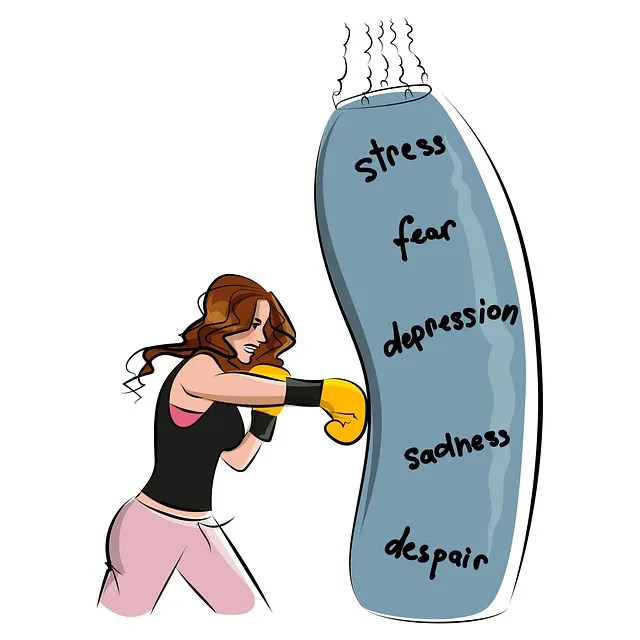The Kaiser Permanente mental health access center in Longmont employs a multifaceted approach to mitigate substance abuse risks, focusing on individual vulnerabilities and societal influences. They offer tailored interventions, training (like Cultural Competency Training), and public awareness campaigns to educate residents about addiction. Through conflict resolution tools, confidence-building programs, and personalized resource guidance, the center empowers individuals to prevent substance abuse. Community initiatives, including evidence-based practices and podcasts, foster mental wellness and reduce abuse rates, reflecting Kaiser Permanente's commitment in Longmont.
Substance abuse poses significant risks, impacting individuals, families, and communities. This comprehensive guide explores effective risk reduction strategies, focusing on both personal and community levels. We delve into the complex factors contributing to substance misuse, highlighting the crucial role of organizations like the Kaiser Permanente Mental Health Access Center Longmont in mitigating these risks. By understanding the dangers and implementing targeted interventions, we can foster healthier environments and support those at risk.
- Understanding Substance Abuse Risks: A Comprehensive Look
- The Role of Kaiser Permanente Mental Health Access Center Longmont in Risk Mitigation
- Individual Strategies for Reducing Personal Substance Abuse Risks
- Community-Based Approaches to Lowering Substance Abuse Rates
Understanding Substance Abuse Risks: A Comprehensive Look

Substance abuse risks are multifaceted and complex, requiring a comprehensive understanding to effectively mitigate them. At the Kaiser Permanente mental health access center in Longmont, experts emphasize that recognizing risk factors is the first step towards prevention. This includes not just identifying individual vulnerabilities but also considering broader societal and cultural influences that contribute to substance misuse. By examining these factors, healthcare providers can tailor interventions to address specific needs, ensuring more effective support for patients at risk.
For mental health professionals, enhancing their skills through training like Cultural Competency Training plays a pivotal role in managing these risks. This training equips them with the knowledge and confidence to navigate diverse patient backgrounds, understand cultural nuances, and offer personalized care. Additionally, implementing Risk Management Planning allows professionals to proactively anticipate and address potential challenges, further boosting their ability to foster positive mental health outcomes and prevent substance abuse.
The Role of Kaiser Permanente Mental Health Access Center Longmont in Risk Mitigation

The Kaiser Permanente Mental Health Access Center Longmont plays a pivotal role in mitigating risks associated with substance abuse within the community. This center serves as a comprehensive hub, offering various services tailored to prevent and address mental health issues, including addiction. Through their innovative programs, they aim to reduce the overall risk of substance misuse by targeting at-risk individuals early on.
One of its key strategies is the development and implementation of public awareness campaigns that educate the community about the dangers of substance abuse. By raising awareness, the center empowers individuals to make informed choices and seek help when needed. Additionally, they provide conflict resolution techniques and confidence-boosting programs, addressing underlying issues that may contribute to substance abuse, thereby fostering a healthier environment where addiction is less likely to thrive.
Individual Strategies for Reducing Personal Substance Abuse Risks

Reducing personal risks associated with substance abuse is a proactive approach that can significantly impact long-term well-being. Individuals play a crucial role in their own recovery and resilience by adopting certain strategies. One effective method is to enhance emotional intelligence and social skills, which can be achieved through specialized training programs. These programs focus on developing self-awareness, coping mechanisms, and healthy interpersonal interactions, all of which are essential tools in managing substance abuse triggers.
By seeking support from healthcare providers with cultural competency training, individuals can access tailored resources and guidance. The Kaiser Permanente Mental Health Access Center in Longmont, for instance, offers specialized services catering to diverse populations, ensuring that personal needs are addressed effectively. This holistic approach combines individual development, such as emotional intelligence training, with accessible healthcare services, providing a comprehensive strategy for risk reduction and long-term substance abuse prevention.
Community-Based Approaches to Lowering Substance Abuse Rates

Community-based approaches play a pivotal role in reducing substance abuse rates and fostering a healthier environment. Organizations like Kaiser Permanente’s mental health access centers in Longmont are at the forefront of this initiative, offering comprehensive services that cater to the unique needs of their communities. These centers serve as hubs for education, prevention, and treatment, empowering individuals to make informed choices regarding their mental health and well-being. By integrating evidence-based practices and leveraging community engagement, these initiatives target high-risk populations and promote early intervention.
One effective strategy is the development of inner strength and self-care routines, which can be facilitated through various programs like the Mental Wellness Podcast Series Production. These podcasts provide accessible platforms for sharing valuable insights on mental health management, addiction recovery, and building resilience. Such initiatives not only educate but also inspire community members to take charge of their mental wellness, fostering a supportive environment that discourages substance abuse.
Substance abuse is a complex issue, but with a multi-faceted approach, risks can be significantly reduced. By understanding the dangers and implementing strategies at both individual and community levels, it’s possible to create a safer environment. The Kaiser Permanente Mental Health Access Center Longmont plays a vital role in this, offering specialized services to mitigate risks. Combining these efforts with personal strategies ensures a comprehensive approach to tackling substance abuse and its associated hazards.






